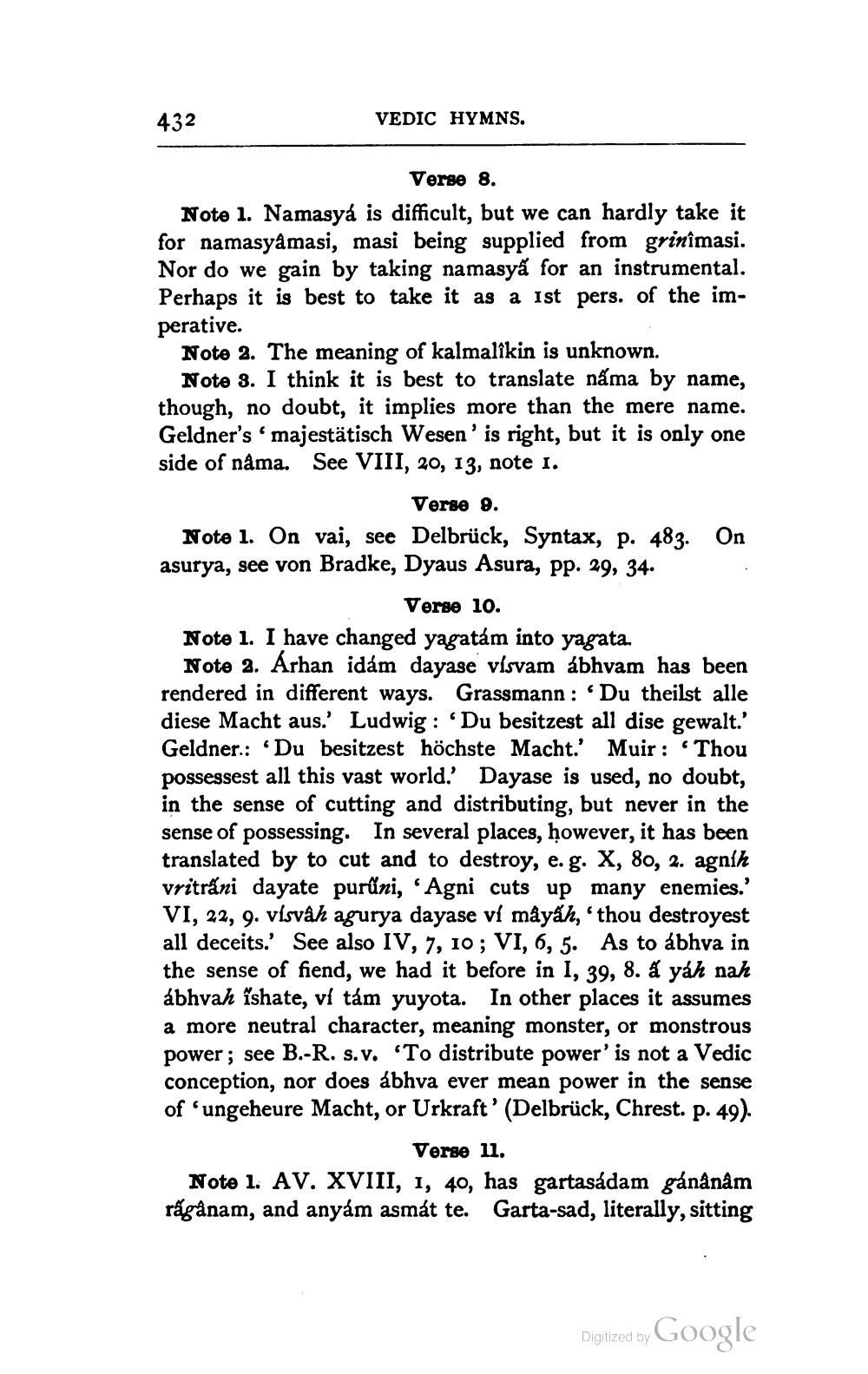________________
432
VEDIC HYMNS.
Verse 8.
Note 1. Namasyá is difficult, but we can hardly take it for namasyâmasi, masi being supplied from grinîmasi. Nor do we gain by taking namasya for an instrumental. Perhaps it is best to take it as a 1st pers. of the imperative.
Note 2. The meaning of kalmalîkin is unknown.
Note 3. I think it is best to translate nama by name, though, no doubt, it implies more than the mere name. Geldner's 'majestätisch Wesen' is right, but it is only one side of nåma. See VIII, 20, 13, note I.
Verse 9.
Note 1. On vai, see Delbrück, Syntax, p. 483. On asurya, see von Bradke, Dyaus Asura, pp. 29, 34.
Verse 10.
Note 1. I have changed yagatám into yagata.
Note 2. Árhan idám dayase vísvam ábhvam has been rendered in different ways. Grassmann: Du theilst alle diese Macht aus.' Ludwig: 'Du besitzest all dise gewalt.' Geldner.: 'Du besitzest höchste Macht.' Muir: Thou possessest all this vast world.' Dayase is used, no doubt, in the sense of cutting and distributing, but never in the sense of possessing. In several places, however, it has been translated by to cut and to destroy, e. g. X, 80, 2. agnik vritrani dayate puruni, 'Agni cuts up many enemies.' VI, 22, 9. vísvâh agurya dayase ví mâyah, 'thou destroyest all deceits.' See also IV, 7, 10; VI, 6, 5. As to ábhva in the sense of fiend, we had it before in I, 39, 8. a yáh nah ábhvah fshate, ví tám yuyota. In other places it assumes a more neutral character, meaning monster, or monstrous power; see B.-R. s.v. 'To distribute power' is not a Vedic conception, nor does ábhva ever mean power in the sense of 'ungeheure Macht, or Urkraft' (Delbrück, Chrest. p. 49).
Verse 11.
Note 1. AV. XVIII, 1, 40, has gartasádam gánânâm ragânam, and anyám asmát te. Garta-sad, literally, sitting
Digitized by Google




